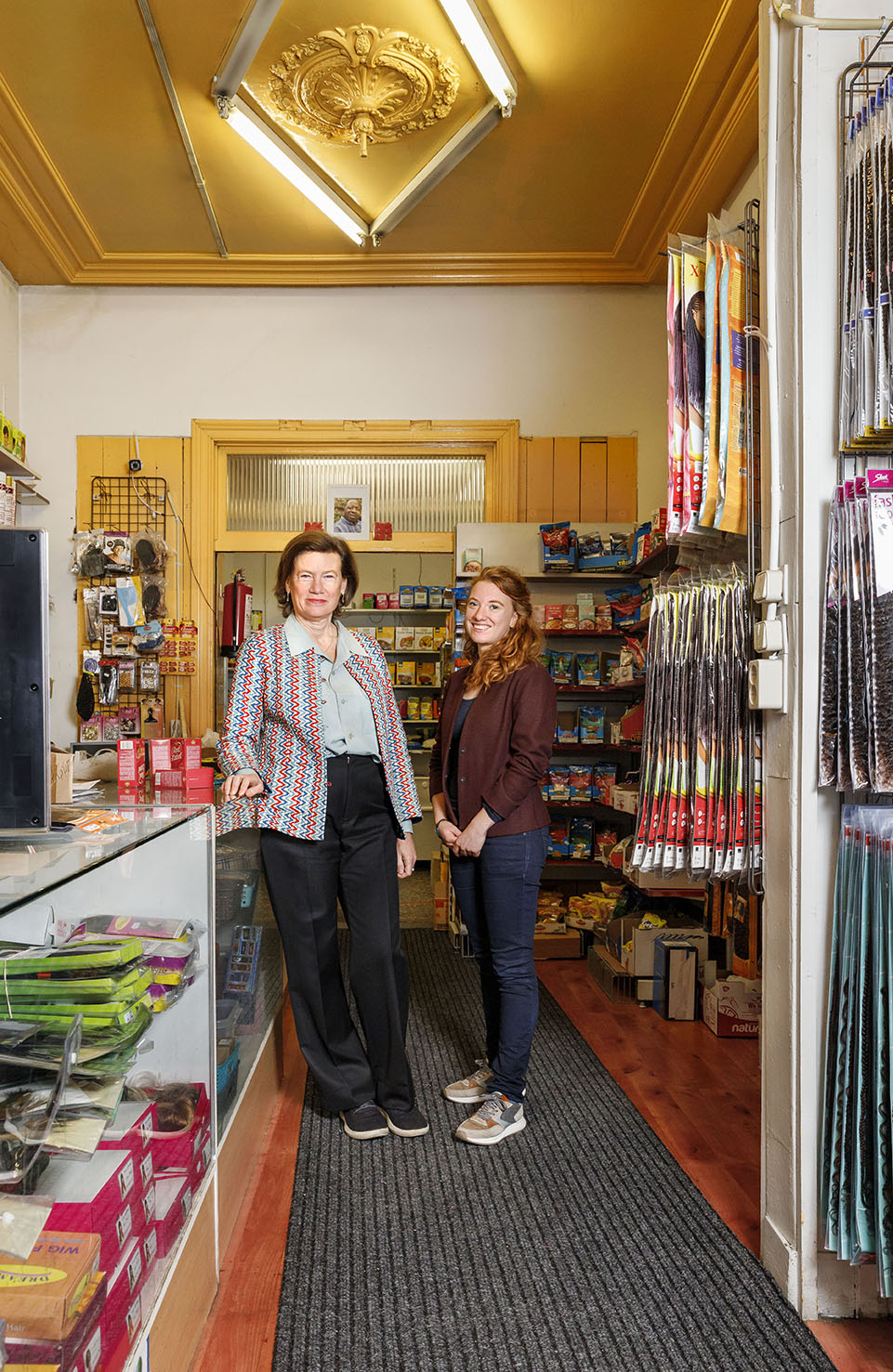Food brings people together
Catalina Goanta, assistant professor of Private Law, is the ultimate host. Not only is she happy to be interviewed in her own kitchen for this article, but – to my great surprise – she also invites me to dinner on the spot. “In Romania we see that as normal. If you pay someone a visit and don’t get anything to eat, that’s a reason never to go back. It’s a sign of respect.”
Goanta has previously cooked for and with groups of students and colleagues. She’s also organising an Easter get-together with traditional food, together with colleagues who, like her, are Greek Orthodox – or, in her case, Romanian Orthodox. “I’m making a type of sweet bread my mother used to make, called cozonac. It has nuts in it and other tasty things – delicious.” The recipe was her great grandfather’s. He was a baker; for Goanta, cooking is also about passing knowledge down from one generation to the next.
Food is very important to her. “You get to know people better through the food they cook. Together with a few colleagues, I once organised a sort of faculty Bake Off. It was amazing; some of my male colleagues completely surprised me by making the most difficult and beautiful cakes.”
Goanta moved to Maastricht in 2008 for the Master in Globalisation and Law. “Fortunately that was possible because Romania had just joined the EU that year. I was curious about the world beyond Romania.”
Starter: tomato and sweet-pepper soup with pesto and cream
She looks back on her childhood in terms of ‘before’ and ‘after’ – that is, before and after her mother became a lawyer. “When we were little, she worked about four hours a day as a teacher. She’d come home and cook for us and make cake. I have fond memories of that time. Things changed when she went to law school and became very busy. I often went to court hearings with her and quickly realised I wanted to study law, too. But I didn’t want to be a lawyer in Romania; it’s difficult to navigate the political interests involved in the justice system.”
Catalina Goanta, assistant professor of Private Law, completed the Master in Globalisation and Law and the Master in Public Policy and Human Development at Maastricht University. She received her PhD in 2016 for her dissertation ‘Convergence in European consumer sales law: A comparative and numerical approach’. In 2019 she started a postdoctoral research project at UM’s Studio Europa.
In keeping with Romanian tradition, she – the daughter – had to take over the domestic duties. “I cooked for my parents and brother from the age of 12. I liked cooking from day one, although it wasn’t always easy to meet my mother’s standards”, she says with a broad smile. “She could be a real Gordon Ramsay in the kitchen, although she never insulted me.” At first her mother would decide on the menu, but as Goanta got older she began to experiment, especially with Italian food. “It caught on. My mother still makes ‘my’ tiramisu for special occasions.”
Main course: grilled mushrooms, green asparagus and Hasselback potatoes à la Ottolenghi
The foods she misses most are the sweet, full-bodied tomatoes from her grandmother’s garden and her mother’s zacuscă (grilled aubergine and sweet pepper spread). Traditional Romanian cuisine is not for the fainthearted: it is rich, high in calories and time-consuming to make. “Romania used to be the border between the West and the Ottoman Empire. You can see the Turkish and Mediterranean influences in the food. For a proper feast you’d have dishes like sarmale (cabbage rolls), lots of meat, salads with mayonnaise – lots of mayonnaise – and profiteroles. I often made ciorbă, soup with meat and vegetables in a homemade broth. A very popular version in Romania is made with tripe and lots of garlic, so it doesn’t smell as much. I don’t like it at all.”
Goanta was born and raised in Bucharest, but her grandparents on her mother’s side lived in the country. “That’s where I saw how chickens are slaughtered. Whenever my grandma wanted to slaughter a duck, I’d always try to save it by setting it free, although it was only ever a stay of execution”, she laughs. “Ducks are so cute. I didn’t feel the same way about chickens. I know how to skin a chicken, I know what it smells like when you cut it open and gut it. That’s why I don’t take the chicken breasts sold in the supermarket for granted. Romanians eat a lot of meat. These days I try to be more conscious of what I eat and to reduce my environmental footprint. Ottolenghi is my favourite chef at the moment; he knows how to make vegetables taste good.”
Dessert: Romanian apple strudel
A key turning point in recent Romanian history was the execution of Nicolae Ceaușescu in 1989, which brought an end to the communist regime. Goanta was three at the time, and after that, things changed dramatically. “Exotic fruits like oranges and bananas used to be a rarity, unless you knew the right people in the Party. Sometimes we’d have a bunch of bananas in the house that had to be stored in the pantry because they were still completely green. When they finally ripened, it was a great treat. My grandfather would queue up at five in the morning for two bottles of milk.”
She remembers the first time they celebrated Sinterklaas after the fall of communism. “My shoe was filled with Twinkies, those little cream-filled sponge cakes from America. I’d never seen sweets like that before. All the shops were overflowing with American products, where there was almost nothing before – from empty shelves to 20 different kinds of cereals. It caused problems as well: people became greedy and got into debt.”
Gift: her mother’s zacuscă and jam
Her parents have since moved from Bucharest to the Transylvanian countryside. Goanta visits them at least three times a year. “It’s such a beautiful area. You just have to watch out for bears.” Fortunately, her parents regularly come to the Netherlands as well. “They always bring two suitcases, one with clothes and one with lots of food, including jam, pickled vegetables and zacuscă.” I leave the house with a jar of jam and my very own pot of zacuscă; I’ve never felt more welcome.
Also read
-

Frederik Claasen, the head of policy at our partner organisation Solidaridad Network on the opportunities and obstacles facing smallholder farmers in their data ecosystems.
-
The PhD research of Karlien Strijbosch focuses on Senegalese migrants who were forced to return home after a stay in Europe. Doing justice to such stories is no easy feat, especially when you come up against walls of silence, distrust and shame. Strijbosch and her supervisor Valentina Mazzucato...
-
In September Cengiz Akbulut was made head of the laboratory of the new Stem Cell Research University Maastricht (SCRUM). Here he discusses multiculturalism, the origin of life and his love of swing dancing.

